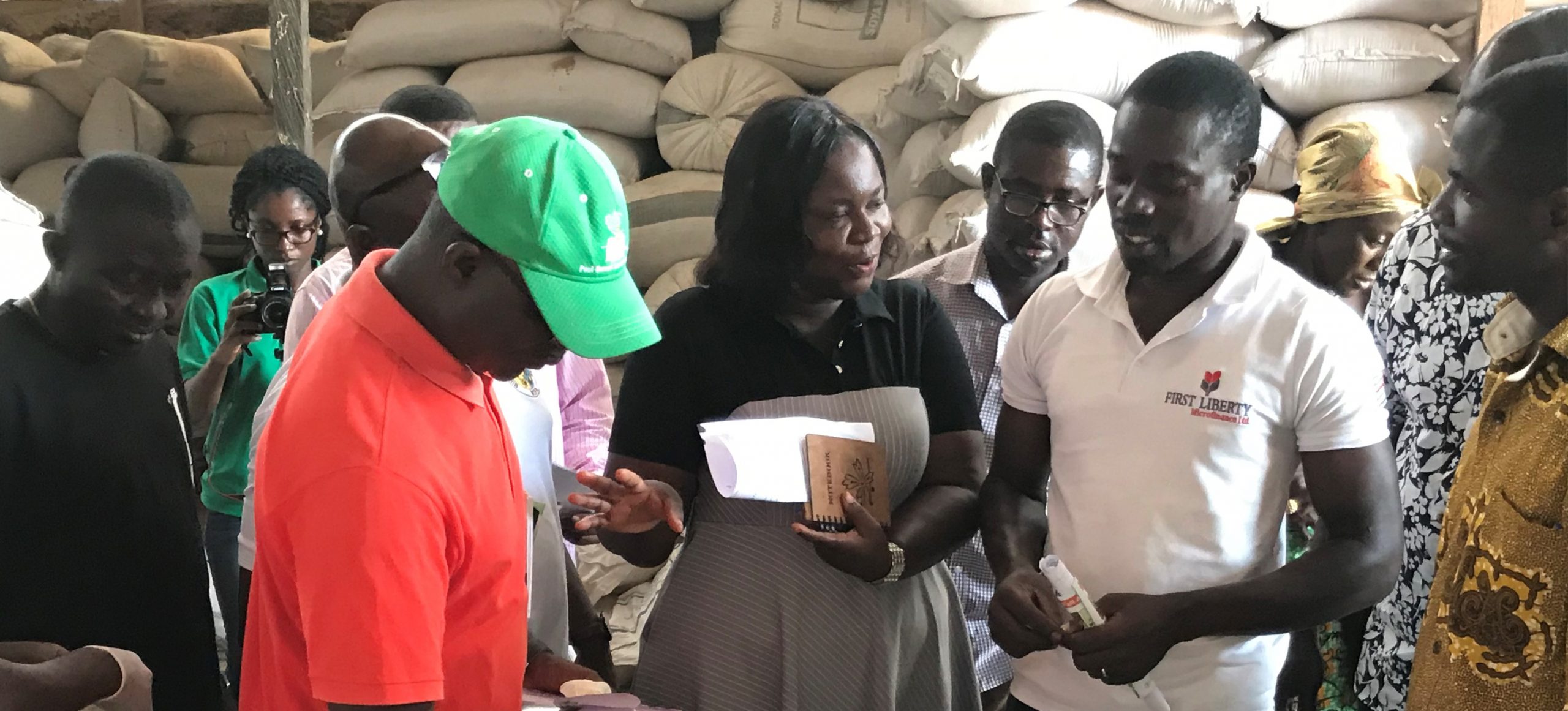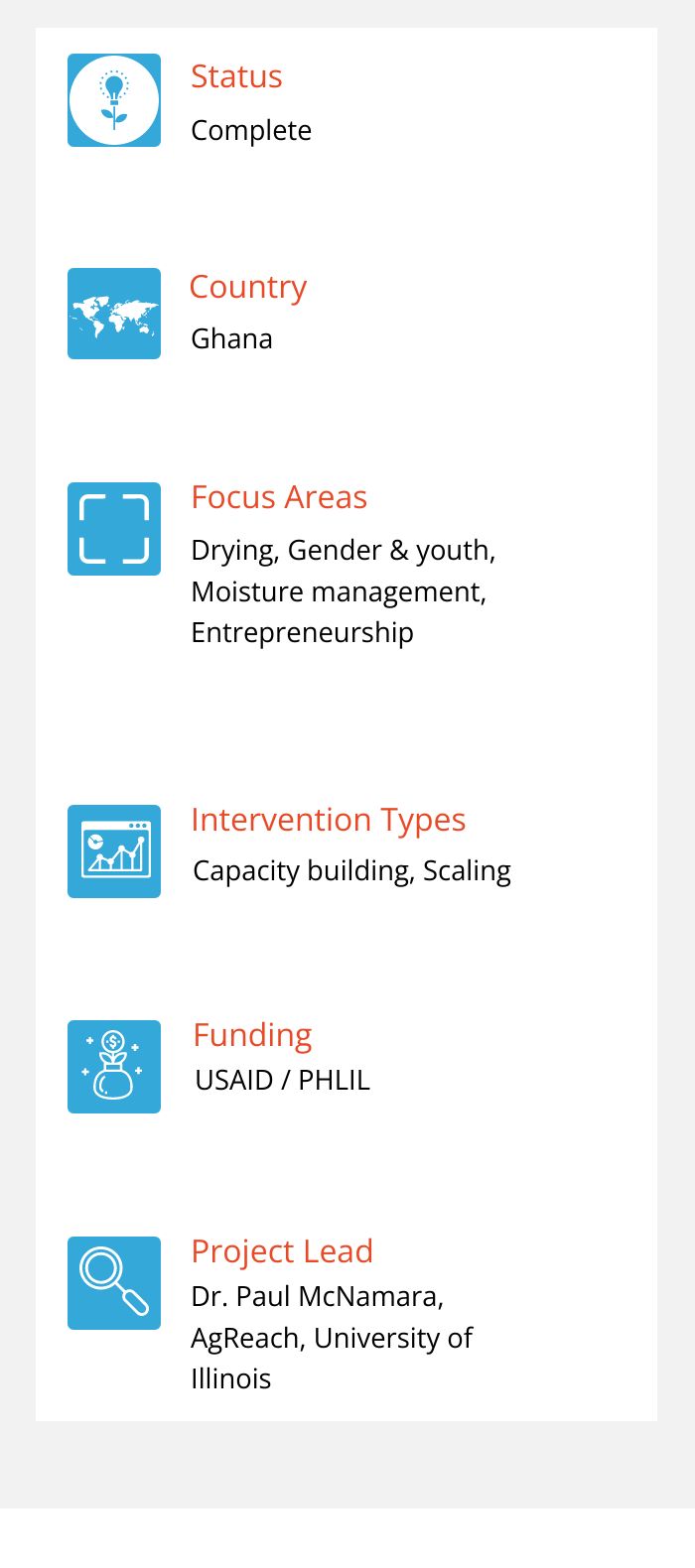Expanding Access to Postharvest Technologies for Women in Ghana
Background
This project is part of the Feed the Future Innovation Lab for the Reduction of Post-Harvest Loss (PHLIL) Phase 2 led by Kansas State University. PHLIL is a strategic, applied research and education program aimed at improving global food security by reducing post-harvest losses in stored product crops. ADMI is a subawardee in the PHLIL project and works with Bangladesh Agricultural University (BAU), University of Illinois-based AgReach, and Assistant Professor Matt Stasiewicz to achieve objectives within the PHLIL project.
Project Information
AgReach is targeting the inclusion of women and engagement of youth in scaling-up and increasing adoption of the GrainMate moisture meter, hermetic storage bags, and other post-harvest products in Ghana. They work closely with the PHLIL-Ghana team, which includes the University of Development Studies – Tamale and Kwame Nkrumah University of Science and Technology (KNUST), to facilitate awareness, enhance demand, and establish efficient distribution channels for hermetic storage by testing, piloting, and scaling up efforts to engage youth.

Project Progress
AgReach is leading efforts to reach women farmers with postharvest technologies by working with the Women’s Poultry Association (WPA), a subsidiary of the National Poultry Farmers Association in Ghana. WPA is active in the Dormaa region, with 50 female members, and offers its members access to technology, extension information and a market network.
Prior to COVID-19, AgReach researchers participated in trainings with poultry farmers in Dormaa, and interviewed male and female farmers about how they use technologies, and the barriers and benefits of these technologies. Based on the interviews, AgReach is creating and distributing postharvest management educational training videos in Twi to reach smallholder farmers through existing networks, especially women and youth.
AgReach is conducting gender assessments of postharvest technologies in collaboration with faculty and students at the University of Development Studies, Tamale. Using the toolkit “Assessing how Agricultural Technologies can Change Gender Dynamics and Food Security Outcomes” AgReach is assessing the differential impacts of technologies on women and men, the equitability in access to the technologies, and the impact on gender roles that result from uptake of the technology. Due to COVID-19, Dr. Anna Snider led online training workshops for faculty and graduate students at UDS on the basics of conducting gender analysis using the toolkit.



